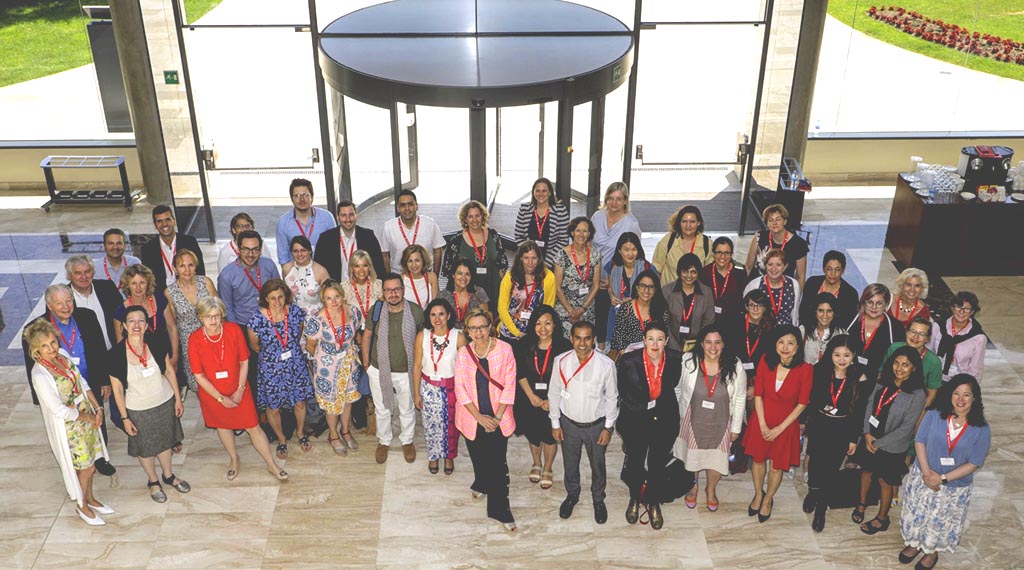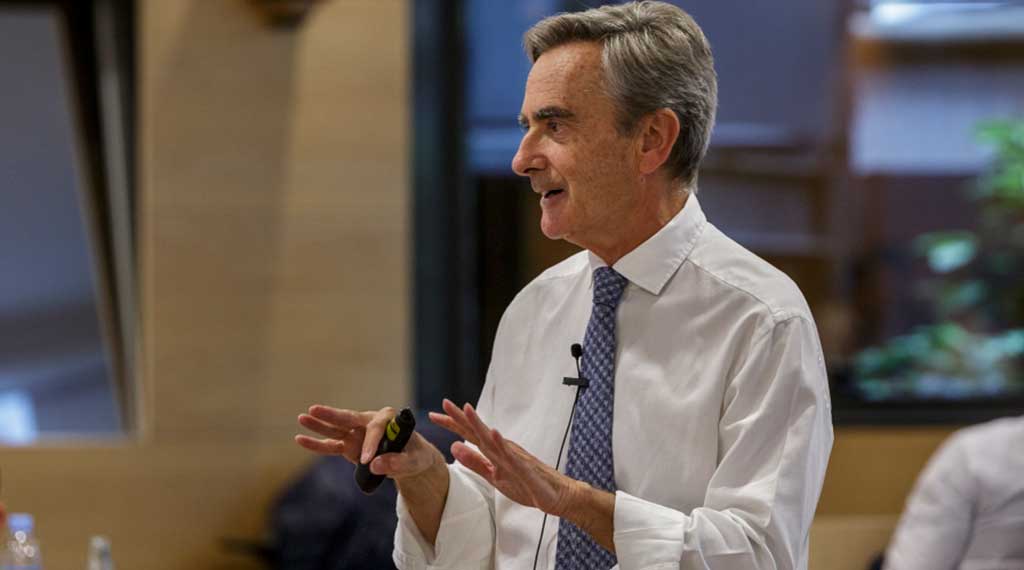Stories
Can working parents be happy ?
Center for Work and Family holds conferences on finding positive balance at home and work
Speakers and participants at the 8th International Conference of Work and Family.
Photo: Roger Rovira
July 2, 2019

For working mothers and fathers, finding balance and happiness requires both a supportive environment at work and supportive government policy.
IESE this week is holding two related conferences organized by the International Center for Work and Family: first the 8th International Conference of Work and Family, and then the 2nd International Conference of Women and Leadership. Both focus on the sometime elusive intersection of work, parenthood and happiness.
The events will gather academics from a wide range of fields, from management, philosophy and empirical social sciences, to law and regulation, and humanistic studies, alongside individuals with vested interests in employees’ needs, motivations and desires.
Leaders have a key role to play in helping employees to find balance and, thus, happiness. “Leaders send a strong message with how they behave because they really signal what is important and relevant in the company,” said professor Mireia Las Heras, director of the Center. “So if leaders are integrating their work and non-work life, employees understand that this is something acceptable, that this is viewed positively in the company.”
Government policies needed
But it’s not just a question of individuals or companies but also of government policy. Several speakers in a session Monday hammered home the message that the U.S. has more family-hostile policies, while European countries have had more success in adopting family-friendly regulations.
Danna Greenberg, co-author of Maternal Optimism: Forging Positive Paths Through Work and Motherhood, said the lack of policies in the U.S. — and the major career repercussions of women having time off — meant that women were overwhelmed about their options and had a negative image of being a “working mother”.
“Charting your own course can be positive. The idea of my book is to say here’s how other women are doing this. Figure your path based on your own circumstances,” she said.
Caitlyn Collins, author of Making Motherhood Work: How Women Manage Careers and Caregiving, looked to different European models in her research on working mothers, fueled by her view that “social policy in the U.S. is failing families.”
She found that in Sweden, women laughed at the term “working mother” as it didn’t even exist there as a concept. “Of course I am working, what else would I do?” was the general mentality. Swedes were very happy with their system.
By contrast, one U.S. interviewee, back at work having recently had a child, said, “As long as no one dies and you don’t get fired all is OK.”
“To me this is a very low bar. I’m not interested in work-family balance so much as work-family justice. We need to do much more politically,” Collins said.
“Fatherhood is in transition”
The changing concept of fatherhood was also explored by the speakers. Marc Grau-Grau, co-author of Elevating Fatherhood: Health, Organizations and Public Policies, said “Fatherhood is in transition. The risk is that it is in transition forever. By transition I mean that gap between what fathers are doing and what they want to be doing.”
Alexandra Macht, who has also written on fatherhood, said men were currently trying to reconcile their alpha side (emotional control and power) with incorporating love as parents somehow.
“There has been a lot of emphasis on all types of romantic love but not much on paternal love. I found that paternal love can be defined as ‘doing’,” she said.
More research key
All speakers agreed that more research is needed in terms of different cultures, races and ages and their interplay with different organizations and policies as regards work-life balance. Cross-over research exploring how home and work relationships impact each other and vice versa would also be welcome, said Greenberg. “We need to do more as scholars in terms of research on age and race diversity, and on organizations and policies across all areas of work-life balance.”

